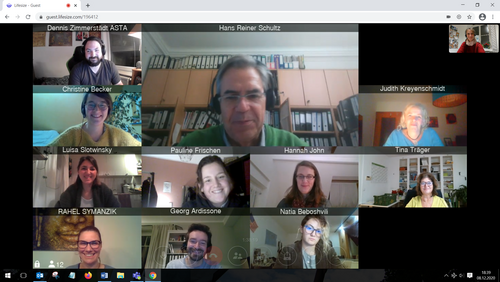Sustainability at Hochschule Geisenheim University
Hochschule Geisenheim University aims to integrate principles of sustainability into the university development process. For this purpose, the department "Strategic University Development and Sustainability" was established as a central coordination and steering unit. The department is responsible for implementing a holistic approach (Whole Institution Approach) to sustainable development at the university and defining sustainability goals. This is done transparently, with broad participation and with the intention of strengthening existing commitment. This comprehensive approach includes five areas of action: university administration/governance, operations, teaching & student affairs, research and transfer. Our goal is to make the entire university as resource-efficient as possible.
The central plattform to shape our sustainable university is the Green Office (sustainability office), which enables participation of all university members and raises awareness for holistic sustainability.
Our Definition of Sustainability
At Hochschule Geisenheim University, we understand sustainability and a sustainable development as “meeting the needs of the present without compromising the ability of future generations to meet their own needs” – a definition from the Brundtland Report published in 1987. Our efforts to make the university more sustainable are guided by the integrated sustainability model: what can be implemented within planetary boundaries (ecology) and in a socially just (social) and economically efficient manner (economy) is considered sustainable. In addition, we are guided by the 17 Global Sustainable Development Goals (SDGs) of the United Nations and the UNESCO program “Education for Sustainable Development: Towards achieving the SDGs” (ESD for 2030).
The German Federal Ministry of Education and Research (BMBF) describes Education for Sustainable Development (ESD) as empowering people with the knowledge and skills to make informed decisions and sustainable choices. For each and every one of us, it is all about understanding the impact of our actions on our own generation around the world and on future generations. We all need to be aware of our responsibility and make sustainable decisions based on that awareness.
Institutions that follow a whole institution approach integrate ESD principles (Education for Sustainable Development) into all areas of higher education: in courses, learning processes and methods. In addition, the institution raises awareness for the conscious use of energy and resources and empowers students and staff to make sustainable choices. In this context, teaching and administrative staff can attend trainings and programs, and all members of the university are involved in decision-making processes. In addition, institutions with a holistic approach cooperate with local communities and other partners and civil society associations.
We must use all the resources we have to make our planet a greener, fairer and more positive place to live. Challenges such as food security, climate change, resource efficiency and environmental protection can only be met with global cooperation, smart ideas and clever minds, and dedication and commitment on a small and large scale.

Fair Trade
Striving to Become a Fair Trade University
Hochschule Geisenheim University is working towards a Fair Trade University certification, which is awarded by the “TransFair Association for the Promotion of Fair Trade in One World”. What started out as a student initiative has turned into a cross-university project group involving students, scientific and administrative members of staff as well as professors. The group is chaired by University President Prof. Hans Reiner Schultz.
The project group brings together interested members of the university, and communicates the topic both internally and externally. They organize initiatives and make sure that all requirements are met. But the group even wants to go one step further and raise awareness of subjects such as green production, sustainability, food waste and resource efficiency.
What does 'Fair Trade' mean?
Clothing, coffee, fruit or vegetables – by choosing Fairtrade products, consumers can make a difference. Our choices help to make sure that people who produce, process, transport and sell our products are paid a fair price. Quite often, farmers and workers only receive a tiny share of what we pay for their products. By making production costs, wages and value chains more transparent, different initiatives aim to make trade fairer and more sustainable and promote solidarity.
Fairtrade means:
- fair minimum prices so that all people along the value chain can earn a good living
- long-term and reliable trade relations
- protecting the right of workers and children; no child labour
- promoting environmental protection during cultivation, production and processing
In addition, communication and raising awarness are other important factors that Hochschule Geisenheim University wants to promote.
- Prof. Dr. Hans Reiner Schultz – President, chairman of the group
- Sébastien Loison – Head of the Cafeteria
- Natia Beboshvilli – Student
- Pauline Frischen – Student, member of the Student Parliament
- Luisa Slotwinsky – Student
- Rahel Symanzik – Student
- Dennis Zimmerstädt – Student, AStA chairman
- Prof. Dr. Judith Kreyenschmidt – Professor for Quality & Fresh Produce Processing
- Georg Ardissone, M.Sc. – Department of Applied Ecology
- Dr. Christine Becker – Department of Crop Protection
- Jutta Gadamer – Team ProDUAL
- Hannah John, M.Sc. – Department of Fresh Produce Logistics
- Dipl.-Ing. Agr. Eike Kaim – Department of Wine and Beverage Business
- Julia Baumberger, M.A. – Head of Event Management
- Alina-Louise Kramer, M.A. – Communications and University Relations
Fair Trade FAQ
Fair Trade includes much more than just monetary aspects. The World Fair Trade Organisation (WFTO) has defined 10 principles of Fair Trade:
- Creating opportunities for economically disadvantaged producers
- Transparency and accountability
- Fair Trading Practices
- Payment of a Fair Price
- Ensuring no child labor and forced labor
- Commitment to Non Discrimination, Gender Equity and Women’s Economic Empowerment and Freedom of Association
- Ensuring good working conditions
- Providing capacity building
- Promoting fair trade
- Respect for the environment





